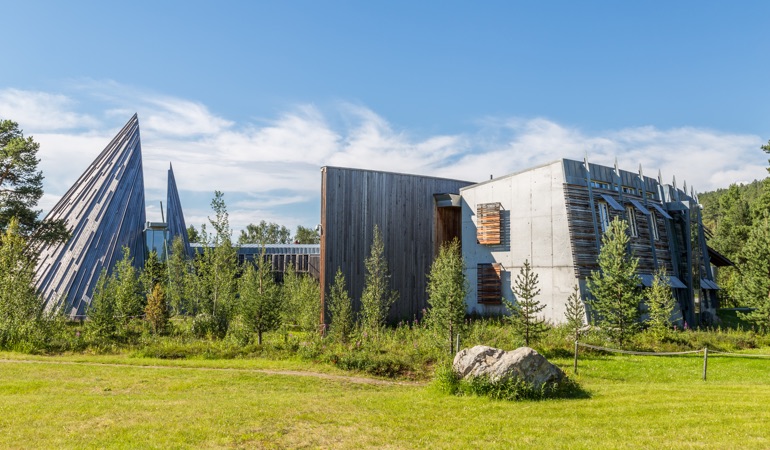
Since 1989, the Sami people of Norway have been able to elect representatives to a Parliament solely focused on Sami issues.
The Sami Parliament is in an independent body elected by and representing the Sami people living in Norway. The Parliament deals with matters that specifically concern the Sami.
The beautiful Parliament building
The main administration is based in Karasjok, but also has a presence in Kautokeino, Nesseby, Kåfjord in Troms, Tysfjord and Snaåsa.
However, it's the eye-catching architecture of the main Parliament building in Karasjok that everyone knows:
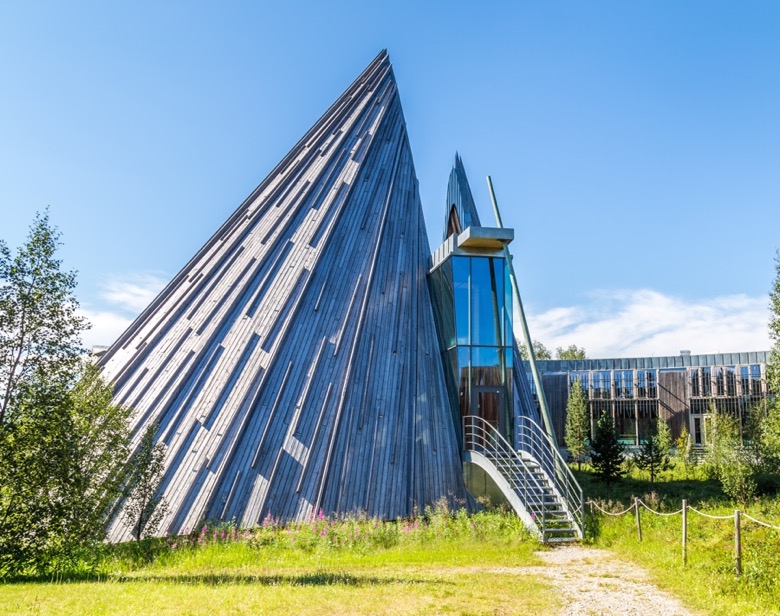
Visitors are welcome to tour the Parliament building on guided tours that are given once per day (Mon-Fri) throughout the year, and several times per day from mid-June to mid-August. Tours are given in Sami, Norwegian and English.
How the Parliament works
The Department of Sami and Minority Affairs in the Ministry of Labour and Social Inclusion coordinates national affairs with the Sami Parliament. The Sami Parliament is consulted when state government issues affect Sami interests.
The Department allocates more than NOK 400 million over various national budget lines, but the Sami Parliament can distribute the funds according to its own priorities.
Amongst other things, the Parliament manages the Sami Development Fund, takes responsibility for the development of the Sami language(s) in Norway, promotes and protects Sami culture, and elects three of the six members to the board of the Finnmark Estate, the organisation that manages the 96% of land in Finnmark that is owned by the people.
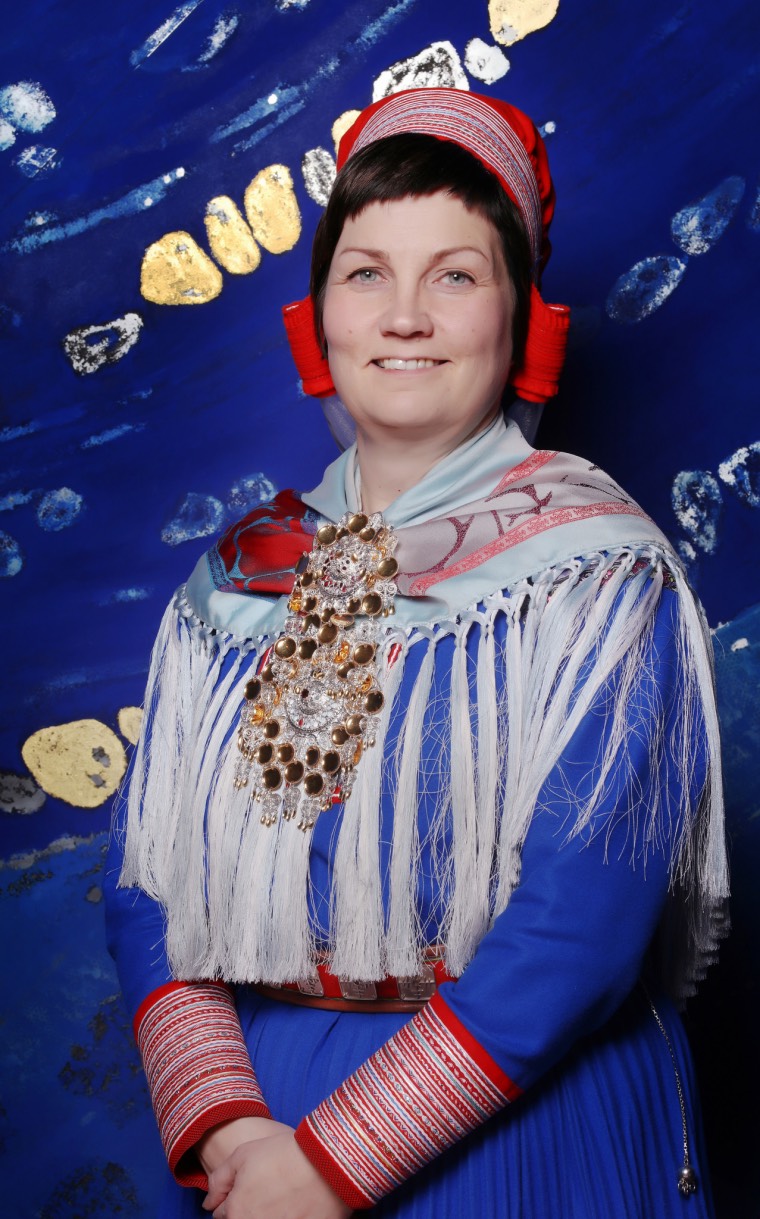
The current president of the Sami Parliament is Aili Keskitalo (pictured above) who represents the Norwegian Sami Association. Her term is 2017-2021.
How the elections work
Elections are held every fourth year and are based on the Sami Parliament's electoral roll, which determines who can vote and run for office.
Inclusion in the electoral roll is for anyone who “perceives themselves” as Sami and who has Sami as their home language, or who has a parent, grandparent or great- grandparent with Sami as their home language.
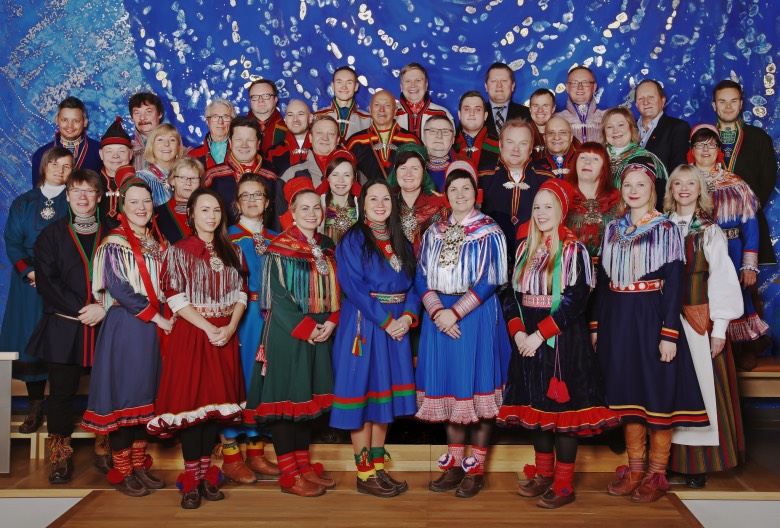
Children of individuals who are, or have been registered, in the parliament’s electoral roll can also register. Today there are approximately 15,000 registered voters.
Why the Parliament exists
The battle over the damming of the Alta/Kautokeino river in the 1970s and early 1980s put the rights of the indigenous people on the national political agenda for the first time.
The initial plans would flood a Sami village and a substantial area used for reindeer grazing. Norwegian Sami staged hunger strikes, occupied the office of the Prime Minister, and gained support from both environmental groups and local people.
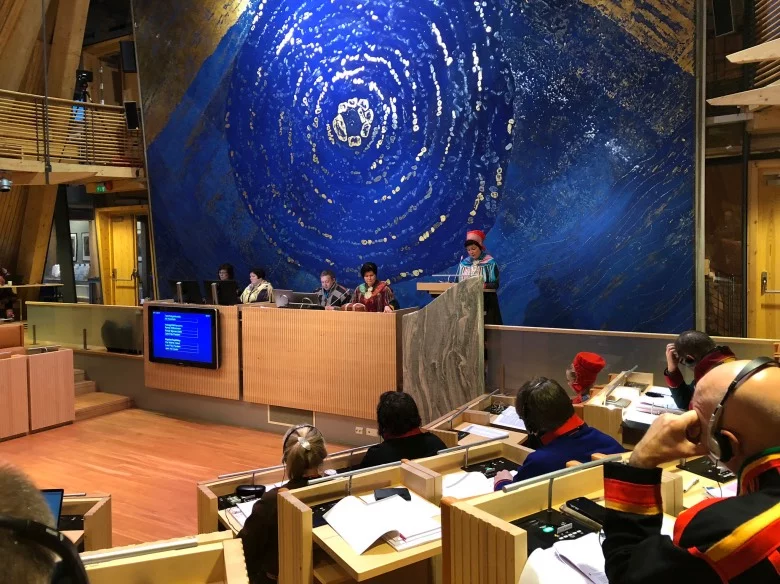
Although the dam was ultimately built, it is said that this conflict eventually led to the creation of the Parliament through the 1987 Sami Act.
Political power
According to this 2015 article in Science Nordic, the Norwegian Sami have more influence over politics in their country than their counterparts in Sweden do.
The Norwegian Sami Parliament can decide which issues it will take up, a right that is enshrined in Norwegian law, while the Swedish Sami Parliament is more limited in the issues it can address.
In Norway, both Sami parties and national political parties offer candidates for election, while in Sweden, only Sami political parties offer candidates for election. This means the Norwegian Sami have closer ties to the national political system.


Very informative.l wish also to see with my vife Sami region Norway, Sweden, and Finland.l agree that your political system is very open minded.l reel myself closer Because of their languages similarities both of them originally from Ural-Altay languages.l hope to see after pandemi as soon as.Greetings from Türkiye.
Very informative.l wish also to see with my vife Sami region Norway, Sweden, and Finland.l agree that your political system is very open minded.l reel myself closer Because of their languages similarities both of them originally from Ural-Altay languages.l hope to see after pandemi as soon as.Greetings from Türkiye.